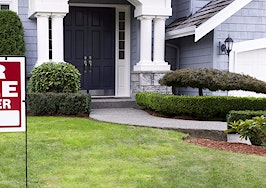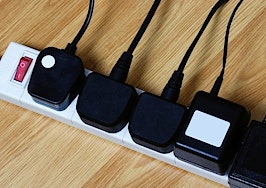- For some buyers with good credit but not enough saved, new zero-down payment mortgages can be a gateway to homeownership. For others, though, they may not be the best option.
No longer do you have to be a qualified veteran or live in a rural area to get a mortgage without putting down a penny. For nearly a decade, only buyers who qualify for VA or USDA Rural Development mortgages have been able to buy a home with zero down.
In recent years, several large credit unions have launched zero-down mortgage products for their members. Now, within the past year, several commercial lenders have introduced mortgages that require only 1 percent down — or nothing at all.
This raises memories of “no down” loans. Are these new offerings a good idea for first-time buyers, or are they a marketing ploy by lenders who want to break through the clutter and attract applications from borrowers who will end up with less risky mortgages?
Super low down loans aren’t for everyone
In fact, many first-timers won’t be able to meet the debt and credit requirements. Even those who qualify may not want to pay the higher interest rates.
Others will discover that the costs associated with a zero-down loan, like origination fees, higher interest rates and mortgage insurance, make it less of a good deal than it first appeared.
In hot markets where the cost of a down payment is rising, super low down loans may be the only way a young family can get into a home of their own before rising rates and even higher prices lock them out for the foreseeable future.
Many of the lenders taking the leap into down payment loans will “gift” the borrower a grant of up to 3 percent of the loan, so the borrower begins a 3 percent equity stake in the mortgage.
Virtually all of the lenders offering zero-down loans are doing so in partnership with either Fannie Mae or Freddie Mac, whose low down payment programs (HomeReady and HomeSteps) require a 97 percent loan-to-value ratio or 3 percent down.
Lenders make up the difference by charging higher interest rates.
Pros and cons of zero-down loans
Here’s what you need to know if you are working with a buyer considering a zero-down loan:
Pros
- Zero-down loans get buyers into homes quickly, before prices and rates rise even higher than they are today. Waiting to save for an FHA loan or other low down payment loan might take many months or even a year or two. Buyers in markets where prices are rising quickly may be better off getting into a home now and beginning the process of accumulating equity rather than waiting.
- Grant gifts of 2 percent to 3 percent of the loan amount from lenders make it possible for borrowers to become homeowners with 3 percent equity.
- Super low down payment loans helps buyers conserve their cash for other needs like closing costs, remodeling and negotiations with sellers over low appraisals.
- Buyers can compete with cash offers because super low down payment conventional loans don’t require a government guarantee like FHA or VA loans.
- Today’s zero-down loans are safer than the nothing down loans marketed during the housing boom. Nearly all of today’s super low down loans are 30-year fixed rate, not the adjustable-rate mortgage (ARM) loans that got so many borrowers in trouble a decade ago. Stricter underwriting standards required by zero-down loans protect both lenders and buyers.
Cons
- Zero-down payment loans typically carry higher interest rates. Rates for zero-down loans are typically around 4.6 percent or 4.7 percent. The current average rate on a 30-year fixed rate mortgage currently is just below 4 percent.
- Many lenders charge origination fees as high as 1.5 percent, which is paid by the “gift” provided by the lender.
- Like all low down payment loans, zero-down payment loans require that borrowers take out private mortgage insurance. The low level of starting equity (3 percent) means borrowers will have to pay for mortgage insurance longer than if they had put more down. Private mortgage insurance typically costs between 0.5 percent to 1 percent of the entire loan amount on an annual basis.
- Many first-time buyers will not be able to qualify for zero-down loans; the minimum FICO scores range from as low as 640 to 720.
Zero-down loans have their advantages for buyers in the right circumstances. You should go over the pros and cons with your clients before they make the decision.
Steve Cook is editor and co-publisher of Real Estate Economy Watch. Visit him on LinkedIn and Facebook.












